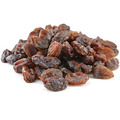How not to have a heart attack
Around one in eight women in the UK will die from heart disease. Don't want to be among them? Of course you don't! So just follow these 10 simple tips... By Jane Murphy

Coronary heart disease is the UK's single biggest killer. Around one in five men and one in eight women will die from the condition. But while a third of us fear dementia or cancer, only two per cent are afraid of developing heart problems, according to new research by the British Heart Foundation. And one in 10 adults have no idea how to look after their heart health. The good news? Heart disease can largely be prevented. Here's how...
1. Stop smoking
Smokers are twice as likely to suffer a heart attack than non-smokers. But almost one in five people didn't know coronary heart disease can be caused by smoking, according to the British Heart Foundation survey. And no, being an 'occasional smoker' doesn't let you off the hook: one major Norwegian study found that people who smoke between one and four cigarettes a day are approximately 50 per cent more likely to die prematurely. Need help giving up? Go to www.nhs.uk/smokefree.
10 ways to stop smoking
The health benefits of stopping smoking - they start just 20 minutes after you quit!
2. Take up your free NHS health check
If you're over 40 with no serious pre-existing condition, you're entitled to a 'mid-life MOT' at your GP's surgery. Your weight, blood pressure, cholesterol, blood sugar and general diet and lifestyle will all be assessed - with the aim of spotting the early signs of, or preventing, a serious condition such as high blood pressure, heart disease or diabetes. To find out more, contact your GP or go to www.nhs.uk/Conditions/nhs-health-check.
3. Maintain a healthy weight
It's easier said than done, we know, but getting - and staying - in shape is key to good heart health. Being overweight can increase your chances of developing high blood pressure, diabetes or high cholesterol - all of which are key risk factors for heart disease.
Check your BMI online
See all of our free online diets
The health risks of being overweight
4. Lead an active lifestyle
Staying physically active can help you maintain a strong and healthy heart, as well as keep your weight in check. Aim to be active every day and build up to 150 minutes of moderate intensity aerobic activity every week. Haven't exercised in a while? Build up slowly and remember, every 10-minute session counts - so just walking to the corner shop instead of jumping in the car will give your heart health a boost.
20 easiest-ever ways to exercise
Fit and fabulous: exercising at every age
Five-minute home workouts
5. Ditch the salt
Too much salt can raise your blood pressure, putting you at increased risk of heart disease. So how much is too much? Current NHS guidelines state that adults should consume no more than 6g salt per day - that's roughly one full teaspoon. So cut down on the amount of salt you add to your food; try flavouring meals with pepper, garlic, herbs or spices instead. But remember, 75 per cent of the salt we eat has already been added to food such as bread and cereal.
15 ways to cut down on salt
Get the facts on salt
How healthy is your breakfast cereal?
Low-salt recipes to try
6. Eat your five-a-day
A balanced diet should include at least five 80g portions of fruit and vegetables each day to ensure your body gets all the vitamins and minerals it needs. These can be fresh, frozen, dried or tinned. To get the best possible range of nutrients, try to vary the types of fruit and veg you eat. A couple of tips to remember? Potatoes don't count. And no matter how many beans or pulses you consume in a day, they only amount to one portion. The same goes for unsweetened juices.
10 sneaky ways to your five a day
Fruit and veg: how big is a portion?
Discover the superfood fruit and veg
7. Cut down on saturated fat
Too much saturated fat - the kind found in butter, lard, cheese, cream, crisps, pies, cakes, biscuits and fatty cuts of meat - can put you at risk of high cholesterol, which in turn increases your chances of developing heart disease. Current NHS guidelines state that women should eat no more than 20g saturated fats each day. Use unsaturated fats, such as olive oil or sunflower oil, for cooking instead.
Cook delicious recipes - without the saturated fat
20 ways to cut down on fat
Try the healthiest cooking oils
8. Read the food labels
Learning to read food labels is a quick and easy way to find out how healthy your food really is. A few tips? Choose foods with fewer calories per portion. The further salt and fat are down the ingredients list, the better - it means there's less of it. Some labels use red, amber and green colour coding to make it easier to choose food that is lower in total fat, saturated fat, sugar and salt. Choose more greens and ambers and fewer reds.
9. Don't drink too much
Too much booze can increase your risk of developing an abnormal heartbeat, high blood pressure or stroke. The current guidelines? Women should avoid regularly drinking more than two or three units of alcohol in a day. That's no more than a 175ml glass of wine. 'Regularly' means drinking this amount most days or every day. Need help cutting down? Get advice and support at www.drinkaware.co.uk
Do you drink too much? Take the quiz
10. Watch your portion sizes
Learning to control your portion sizes can help you maintain a healthy weight. Remember, you don't have to eat the same-sized meal as your partner or dining companions. Chew more and pause between mouthfuls; put your knife and fork down if it helps!
For more support and advice on preventing heart disease, go to www.bhf.org.uk
You might also like...
Heart disease: look after yourself
Heart disease: minimise your risk
The top five health risks for women










